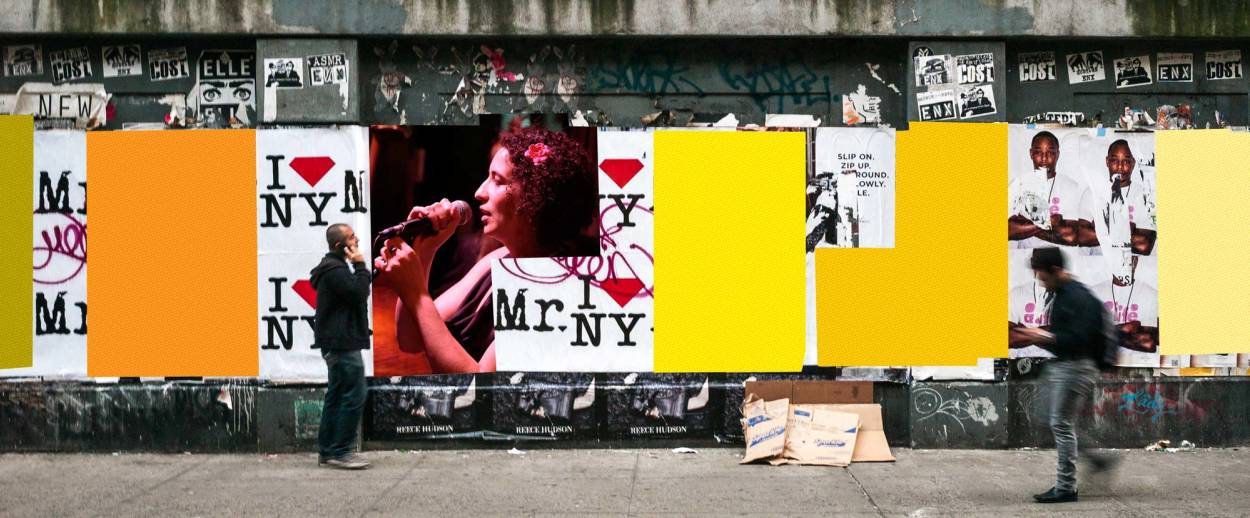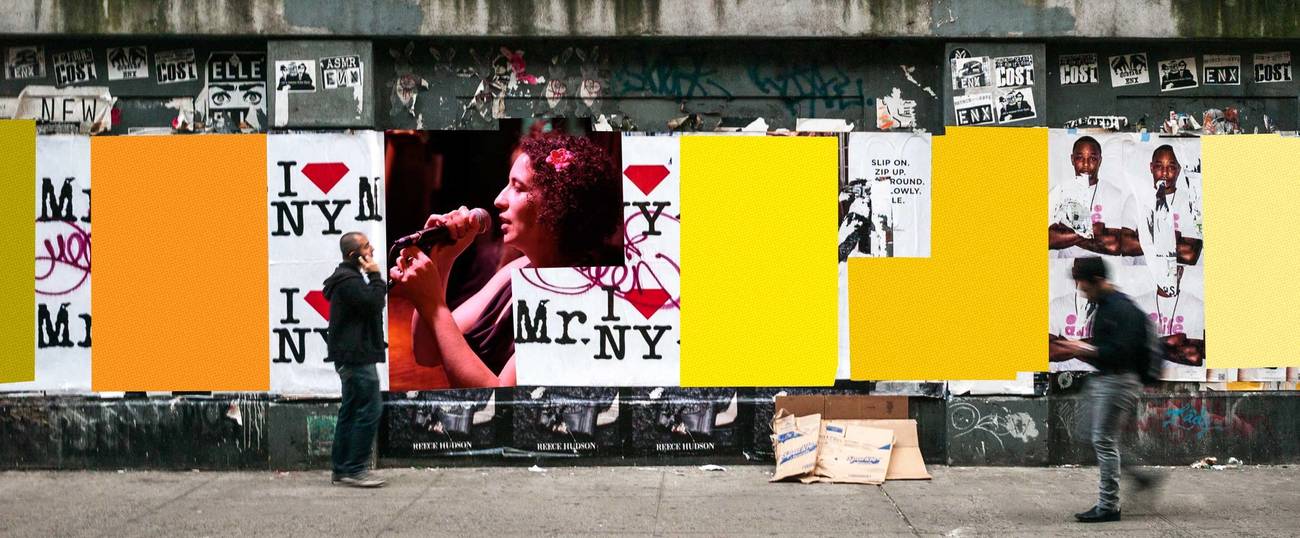Rokhl’s Golden City
Tablet’s new kinda-sorta-weekly column brings you diaspora culture with a Yiddish twist




The first time I met Eléonore Biezunski wasn’t the first time I met Eléonore Biezunski. It was a muggy June night in 2006 and I had made my way downtown to see one of my idols, Jewlia Eisenberg, and her avant-everything band, Charming Hostess. A young woman with curly hair tapped me on the shoulder as I looked for a seat. The hair was familiar, but I couldn’t place the face. Did we know each other? “Yes, we”—she indicated her male companion—“were at your bas mitzve.” They were? I had celebrated my adult bas mitzve that April and because I was an adult and could do what I wanted, I had hired klezmer king Frank London to play at my party. I shouldn’t have been surprised that it attracted unknown partiers with excellent taste.
At that time, Eléonore (a native Parisian) was in town for a month inventing klezmography, a merger of her academic interests of geography and ethnomusicology. Today, Eléonore is a full-time New Yorker and part-time sound archivist at YIVO, and the Klezmographers, her duo with tsimblist Pete Rushefsky, is just one of her musical projects. Over the years, I’ve known Eléonore primarily as a fiddler on the klezmer scene. It wasn’t until 2015 that I got to hear her sing, and it was worth the wait. Not only did she have a beautiful Yiddish singing style, her sexy French-Yiddish accent absolutely slayed me. Her newest CD is out now and you can easily verify for yourself. Yerushe (Heritage) brings together Eléonore’s smoldering Yiddish chanteuse side with her meticulous archival work. The repertoire on Yerushe focuses on the foundational names of Yiddish ethnographic collecting—Ruth Rubin, Moshe Beregovski, and Zusman Kisselgoff—but the result is anything but dusty.
On top of all that activity, Eléonore is associated with one of my favorite new online resources, the streaming radio station Yiddish Pour Tous, which started out as a Francophone Facebook group called Yiddish Pour Les Nuls (Yiddish for non-Yiddish speakers). As the group grew, it quickly included people of every Yiddish level, hence the name change to Yiddish Pour Tous (Yiddish for All). YPT has already outgrown the virtual confines of Facebook and sponsors Yiddish events in France. You can tune into YPT radio at any time. But it’s worth it to subscribe to the mailing list and be kept up to date on the YPT programming, not all of which is available after it has streamed. Eléonore has started doing a “from the archives” show for YPT (in English), pulling deep cuts from the Jewish music archives and giving fascinating context. I can’t say her show doesn’t make me a tiny bit jealous.
When I was an undergrad at Brandeis, I was a minor member of the campus radio station cult. I did the world-music show (it was the ’90s), the overnight, and for a year, the Jewish-music show. I still look on that show as a disappointment, hampered as it was by the fact that the WBRS Jewish music collection sucked and, let’s be fair, I barely knew anything about Jewish music yet. Eléonore’s show for YPT Zing! La chronique d’Eleonore Biezunski is exactly the show I wish I could’ve done at WBRS, so obviously, I love it. Unfortunately, Eléonore has only done three episodes so far, but perhaps if more people demand it, she will start recording them regularly.
You’d be forgiven for assuming it was Eléonore who hipped me to Yiddish Pour Les Nuls in the first place. But it was my friend Yelena Shmulenson who casually mentioned it at lunch last year. A Facebook group for French speakers all about Yiddish? Of course Yelena knew about it before I did. Of course I wanted in.
Yelena may be known to New Yorkers as the great beauty of the contemporary Yiddish stage (known to the rest of the world as the sour dybbuk murderer in the Coen Bros.’ A Serious Man) but to me, she’s the dear friend who always sends me a corgi video when I need it most. (Which, these days, is often.) And when it’s not corgi videos, it’s amazing finds like Searching for Charlotte Zaltzberg: the Legacy of a Lost Female Writer. It’s the utterly riveting search for the Jewish woman who co-wrote the book for the musical version of A Raisin in the Sun and then, essentially, disappeared.
Finally, this week, Eléonore and the Klezmographers played Barbès, the best little music stage in Brooklyn. If they play again, which they will, get there early if you don’t enjoy standing for an hour. (And if you’re already hip to Barbès, and you know how important it is to the New York music scene, please think about supporting its crowdfunding campaign to fight impending eviction.)
***
Listen: Zing!, Eléonore’s bi-monthly Jewish music podcast.
Tune in: Yiddish Pour Tous streaming Jewish music radio.
Read: Charlotte Zaltsberg was in her artistic prime when she was nominated for a Tony in 1973. But when she died the next year, her legacy almost died with her.
ALSO: Pride month starts early with drummer Eve Sicular’s Yiddish Celluloid Closet followed by a performance by Isle of Klezbos, 7 p.m., May 24, at New York’s Center for Jewish History. Exhibition of Jazz Age artist and salonnière Florine Stettheimer, at the Jewish Museum. The 5th Annual Sholem Aleichem Yiddish Klez Fest has gone from a winter event to a summer highlight, once again featuring top musicians, superb dance-leading, and the delightfully indescribable Psoy Korolenko as MC, Sunday, June 4, at 1:30 p.m., Sholem Aleichem Cultural Center-Bronx (take the D to the very last stop). And because I love anything at the intersection of Yiddish and beauty, my new favorite Korean cleansing balm with the improbable name, Heimish All Clean Balm.
Rokhl Kafrissen is a New York-based cultural critic and playwright.